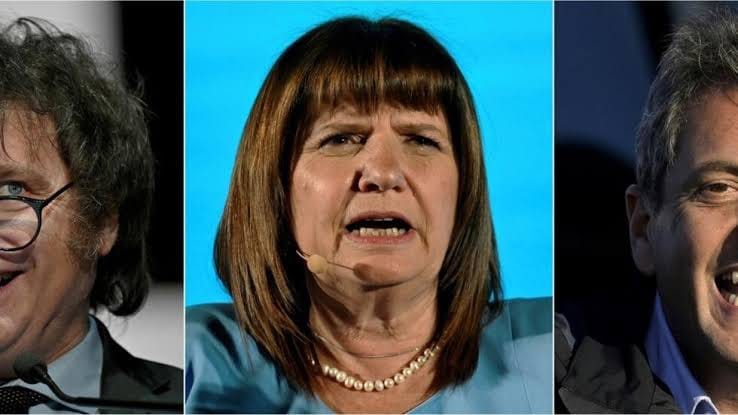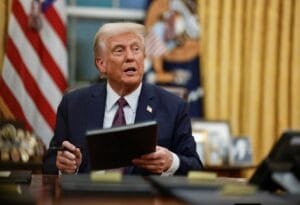‘Uncertainty’ as Argentines vote, seeking elixir for economic ills

Argentines voted Sunday in a presidential election dominated by fury over decades of economic decline and record inflation that has propelled libertarian outsider Javier Milei to the front of a tight race.
Once one of the richest countries in the world, Argentina has found itself unable to escape decades of fiscal crises marked by debt, financial mismanagement, and inflation that now stands at almost 140 percent year-on-year.

Many voters said they were gripped by fear and anxiety over what the election would bring as they chose between frontrunners Milei, Economy Minister Sergio Massa, and former security minister Patricia Bullrich.
“Obviously I voted for Milei,” said Esteban Montenegro, 24, who works in sales, as the election got underway under a light rain in the capital Buenos Aires.
“But it is not that I have all the confidence in the world, or that I think he will do everything, but he is the only one giving solid, transparent proposals.”
With 40 percent of the population living in poverty and a middle class brought to its knees, many voters are keen to see the back of the traditional parties they view as the architects of their misery.
“We need a change. The country is a disaster, really, between the poverty, inflation, people are in a bad situation,” said Gabriela Paperini, 57.
She said she was backing Bullrich, but her daughter was backing Milei, who “I think is going to get a lot of votes.”
To avoid a runoff election on November 19, a candidate needs to win 45 percent of the vote Sunday, or 40 percent with a difference of 10 points or more over the nearest rival.
- ‘Anarcho-capitalist’ –
Milei, a libertarian economist who formed his party Libertad Avanza (Freedom Advances) only in 2021, blindsided most experts and pollsters when he surged to the front of the election race, winning a primary with 30 percent of votes.
The self-described “anarcho-capitalist” with disheveled hair and a rock-star persona has lured voters with his diatribes on television and social media — where he vows to “dynamite” the central bank and ditch the peso for the US dollar.
He has run his campaign on social media and showed up at live rallies with a powered-up chainsaw, vowing to slash public spending by 15 percent.
However, while Milei has topped opinion polls, these have not proved reliable in the past, and analysts say anything can happen between the three frontrunners out of five total candidates.
“There is so much uncertainty… and fear, out of these candidates there are none who represent me. There is no one who can change what we need here in Argentina,” said graphic designer Maria Olguin, 40, who did not want to reveal her vote.
The charismatic economy minister, Massa represents the ruling center-left Peronist coalition, a populist movement heavy on state intervention and welfare programs that has dominated Argentine politics for decades but has grown deeply unpopular.
Having overseen the country’s recent economic pains, he has been an easy punching bag for his rivals.
To woo voters, Massa has gone on a pre-election spending spree, slashing income tax for much of the population in a move analysts say will only make the country’s fragile financial situation worse.
To counter Milei, his government has taken pains to explain to voters what it would mean to lose key subsidies that keep public transport and electricity, among other costs, dirt cheap.
- ‘Highly incompetent’ –
The other frontrunner is the stern and tough-talking Bullrich, who has also vowed radical change from the overspending, money-printing Peronists and their strict currency controls.
Bullrich served in the government of former president Mauricio Macri (2015-2019), a pro-market, non-Peronist who failed in his promise to contain spending and took out a record $44 billion loan with the International Monetary Fund, which has bailed Argentina out 22 times despite several massive defaults.
Voters are fed up with “politicians who have been highly corrupt, highly incompetent, who have never paid attention to something we learn in high school, that you shouldn’t spend more than you earn,” said Buenos Aires-based economist Andres Borenstein.
Preliminary results are expected on Sunday evening.
by Fran BLANDY
©️ Agence France-Presse














